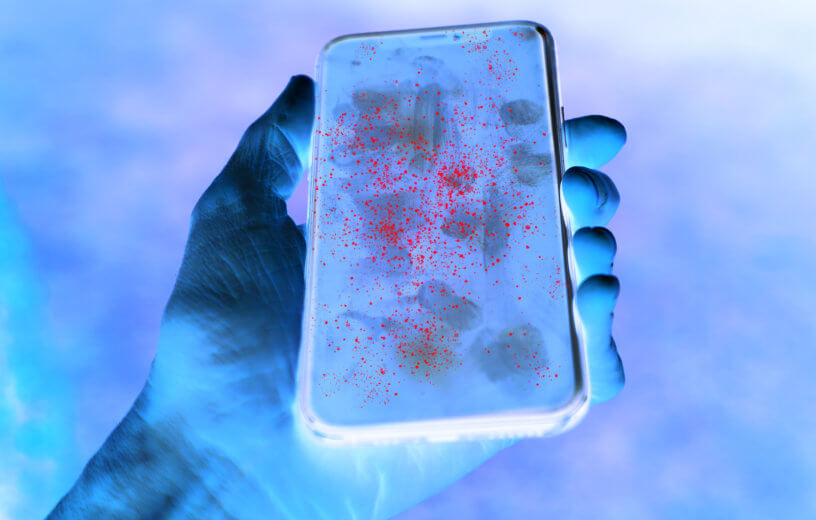Author: Phones are “five-star hotels with premium heated spas, free buffet for microbes to thrive on.”
GOLD COAST, Australia — By now, we all know to diligently wash our hands, but how often are you washing your phone? If the answer isn’t all that often, you may be unknowingly inviting the coronavirus inside your home and body. A new study says that our oft-touched mobile phones act as “Trojan horses” that house a host of harmful germs, disease, and viruses.
How often should you be washing your phone? Researchers from Bond University recommend that you make it a daily habit.
The study’s authors reviewed 56 separate studies conducted in 24 different countries to come to their conclusion. All of those studies were conducted before COVID-19 appeared, but researchers are confident nonetheless that the coronavirus is likely lurking on the screens of millions of phones as you read this right now.
“Our recommendation is that phones should be decontaminated daily and regularly with either 70 percent isopropyl or by sanitizing with (ultraviolet) devices like PhoneSoap,” the study reads.
According to the analysis, golden staph and E. Coli are the most commonly found germs on people’s phones.
Dr. Lotti Tajouri, an associate professor at Bond University & the study’s lead author, says that mobile phones are ‘”five-star hotels with premium heated spas, free buffet for microbes to thrive on.”
“They have temperature control, we keep them in our pockets, we are addicted to them. We talk into them and deposit droplets that can be full of viruses, bacteria — you name it,” he explains in a release. “We eat with them, so we give nutrients to micro-organisms. And nobody — absolutely nobody – washes or decontaminates their phone.”
Regarding international travel, Dr. Tajouri is of the opinion that travelers should have their phones scanned for viruses when passing through borders.
“No border officers check them. It surely causes a biosecurity concern,” he says. “That’s why mobile phones are Trojan horses. We don’t know that we are carrying the enemy.”
It shouldn’t come as a big surprise that our phones are filthy. We’re touching them constantly. It’s estimated that people who check their phone all day end up touching the screen 5,000 times per 24 hours. Even more restrained users tend to handle their phone about three hours each day.
“We know from the Centers for Disease Control and Prevention (CDC) that 80 per cent of all infections are associated with our hands. You can wash your hands as many times as you like — and you should — but if you then touch a contaminated phone you are contaminating yourself all over again,” Dr. Tajouri comments. “Think of your phone as your third hand.”
A contaminated phone doesn’t just pose a risk to its owner either. Let’s say coronavirus is lurking on your phone. Well, you’re riding the bus or subway, scroll through the news on your phone, and then touch a nearby pole with the same hand. Coronavirus is now on that pole and capable of infecting other passengers.
“The extraordinarily fast contagion that has scientists puzzled might reside within these mobile phones spreading COVID-19 everywhere at ultra-speed,” Dr Tajouri concludes. “After all, they’re everywhere, traveling the world in planes, cruise ships and trains. Let’s take that hypothesis seriously. If we clean our phones daily and this makes a difference then we might with this little action curve down the COVID-19 epidemic and save lives.”
The study is published in Travel Medicine and Infectious Diseases.
Like studies? Follow us on Facebook!
